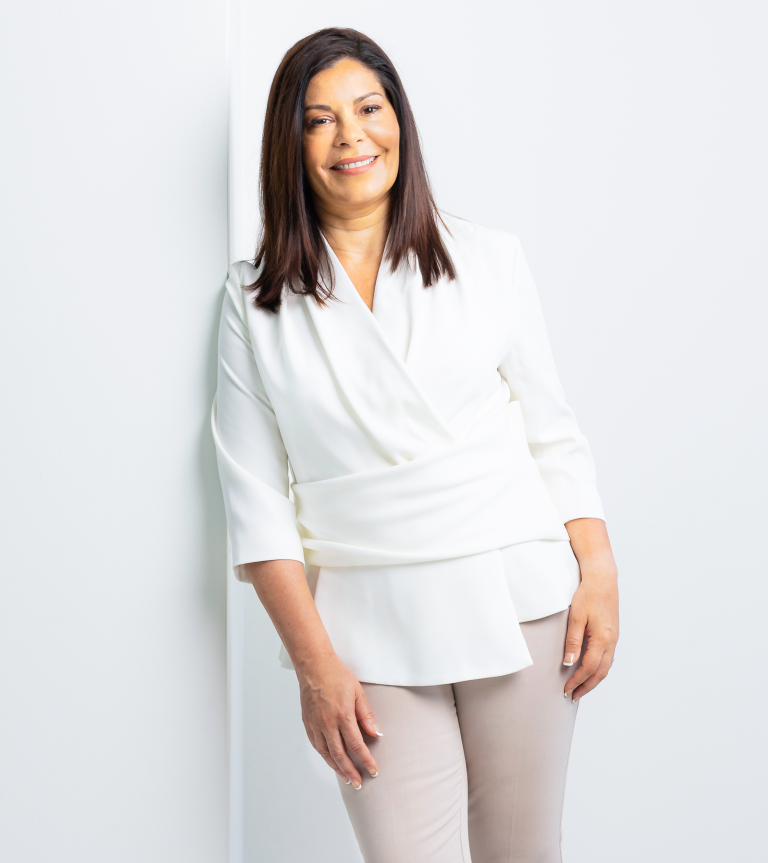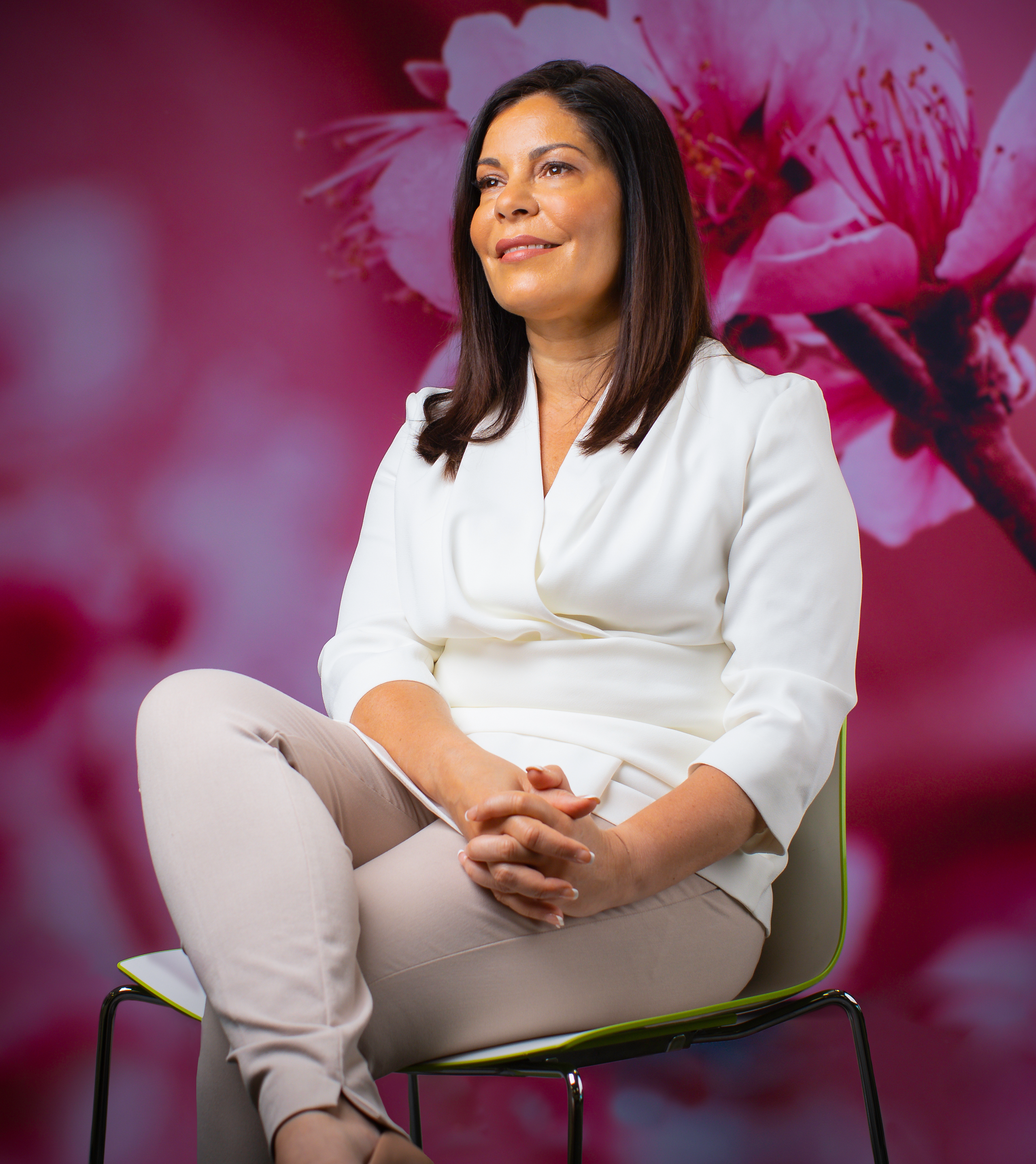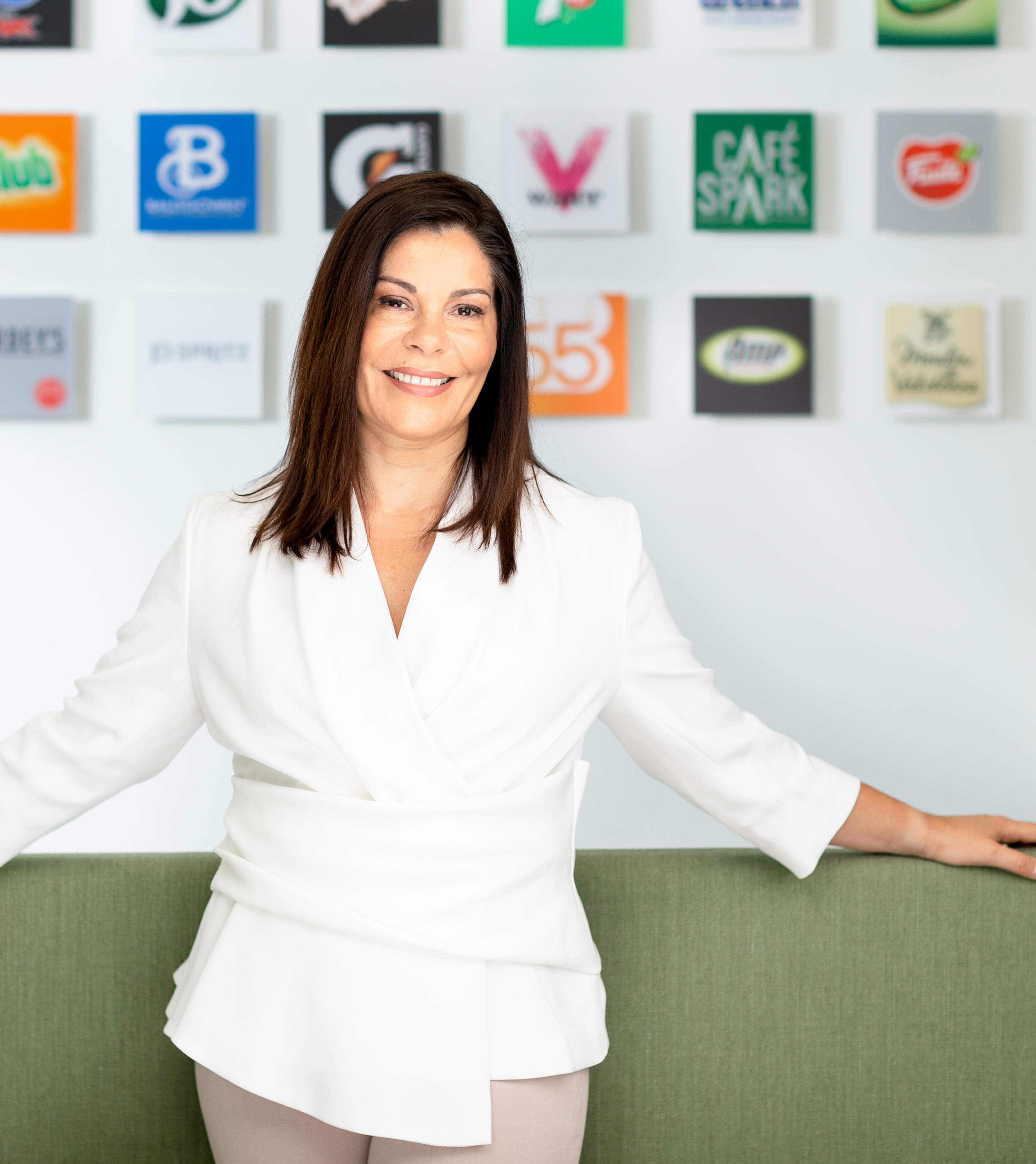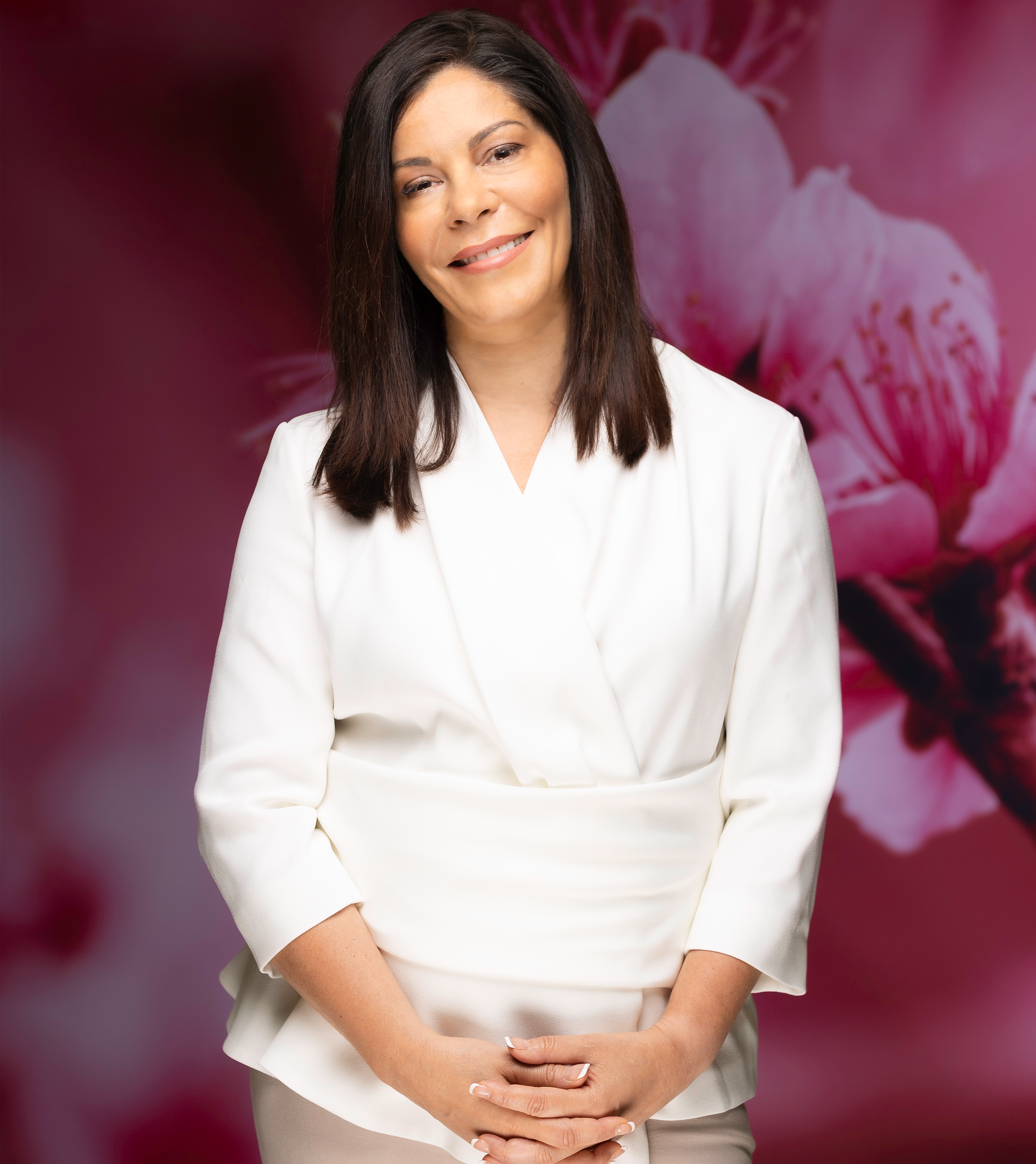There are brands that are ubiquitous, universal and we never stop to think about the continuous operation that goes into delivering product, day after day.

There are brands that are ubiquitous, universal and we never stop to think about the continuous operation that goes into delivering product, day after day.
Growing up, my family and background had a real bearing on my life and my career. I’m from a mixed-race family – my mum’s English and my dad was Indian – and the two different ethnicities and cultures gave me an invaluable combination of experiences and perspectives. This positive richness has shaped me and I truly see the benefits that difference brings. It wasn’t all positive though, we experienced racist discrimination and looking back I can see how it affected my dad’s mental health. This is one of the reasons I wanted to play a role in making the world, in some small way, a more inclusive place. What started as a driving passion has, along the way, developed into a mission throughout my career. My father was pushed too hard academically – learning English and passing his 11+, barely a year after arriving in the UK. Because of this, my upbringing was not focused on education, but on having a wide range of experiences and being curious about the world. Most evenings around the dinner table, we would bring and debate various topics, whether they were personal, in our community or in world news. This taught me about the importance of listening to different perspectives and having the courage to experience new things which built my self-confidence. There was one conversation that has really stayed with me and triggered my desire to have a career in HR. Both my parents worked in retail and, alongside this as a family, we ran a post office and a village store. I distinctly remember asking them, “what makes the difference in how successful a shop is?” My dad answered, “well, it’s the store manager and their leadership.”

It really was. I started at a company called Olympus Sport which, unfortunately like many retailers, is no longer on the high street. Back then though, it was a really dynamic and vibrant time for the sector and we were opening lots of stores. I was given responsibilities beyond my experience and because of this, my capabilities and performance grew, so did my confidence. I arranged a meeting with the CEO, to put my case forward as to why I should be promoted… there is nothing like the bravery of youth! I think about this now and perhaps I was naïve, but I think it is important to retain courage throughout one’s career. After Olympus, I was looking for a business that could provide me with the training I needed to progress and that was Boots the Chemists, where I gained a place in the personnel management training scheme. Boots’ training was excellent and I moved around the business in a number of different roles and departments. This foundation set me up to experience many different retail companies, progressing to more senior roles as I moved. After several years, I felt the need for a change and so joined Powerhouse, the retail company as Chief Human Resources Officer. Powerhouse was the third biggest player in market at that point. It was a large, loss-making organisation, but the leadership and HR team were ambitious and we worked hard to build employee engagement. What it taught me is, with very little and no guarantee of the future, you can build and retain a high-performance team that does amazing things, if you create a clear purpose and belief. My time at Powerhouse also honed my commercial and financial skills in a different way, as you had to be obsessed with cashflow. It really brought home the importance of managing company money as if it were your own and how to be resourceful with a tight budget. It also demonstrated how quickly things can change in a business and that there is never room for complacency. By this stage, I knew I wanted my next career move to be big and so I set my sights on a PLC. I wanted to see if I could bring about change in a business with thousands of employees and I knew that’s where my aspirations to promote diversity and inclusion really lay. After much thought and research, I narrowed my search to the hospitality sector and applied to become Hilton Hotels’ UK HR Director.
Hospitality is such an engaging and absorbing world. Each hotel is a unique entity, a town in its own right. Hilton was highly respected as a brand and a business and I spent the next five years there learning and growing. I always keep an eye on the competition and I could see that InterContinental Hotels Group was winning awards for their employer proposition. When I was headhunted to join them, I was definitely interested in finding out more. Tracy Robbins at the time, was the Chief People Officer and I thought very highly of her and the HR team. I was also looking for an international role – and I think working abroad is important for every true leader. IHG offered this in spades and I soon found myself moving to Singapore, with my family, to become the Regional HR Director for Asia, Middle East and Africa. I worked with CEO Jan Smits and a fantastic leadership team, but I found it much harder than I thought I would. It was a massive undertaking, working across 27 countries in the region and I had significantly underestimated the differences between the cultures across countries and continents. The leadership team helped me realise that my approach was too direct and that I needed to appreciate where different people were coming from more, listen harder and lead in a different way. I took this feedback onboard in a big way and it paid off. From that point on, I enjoyed a hugely enriching career at IHG.

You certainly have to be very resilient in the industry and the cultural diversity makes it both rewarding and challenging. It’s famous for being very transitory and you live or die by the quality of service you’re providing. This is especially true in this era of social media, where one bad customer experience can circle the globe before the guest has even left the lobby. I remember having a conversation with a HR leadership team at the time about redesigning our performance management and our rewards for colleagues. We were debating what the ten most important hotel metrics were. As you would expect; there was guest satisfaction, there was employee engagement, along with myriad more business elements of efficiencies. However, for me, the golden metric was guest satisfaction. It turned into a really heated debate about, how could we measure and incentivise on that one highly subjective and partly uncontrollable outcome? On this point, I stood firm. If HR was not be prepared to take accountability for guest satisfaction, then we aren’t value creators in the business. Without this change in mindset, all we are is a support function to the commercial organisation – we couldn’t have it both ways! This proved to be a massive shift in terms of accountability in that high-performance culture.

Indeed so, a sector that was really robust, resilient, competitive and had amazing growth has been hit hard. But as hard as it’s been hit, I’m confident it will bounce back. Many have taken care of their employees and played a really big role in their communities throughout these challenging times. I think collectively, the sector has really shone through.
I came back from Asia and for a time, I led IHG’s Talent Centre of Excellence, which included talent acquisition, leadership, learning and talent development. This was a really insightful and rewarding time, which enabled me to see how strategic talent and development interventions can create real value in the business. However, I began to feel that it was time for a change. I reviewed my skills and decided I wanted to experience a different sector and to continue with my work promoting diversity and inclusion. With these important considerations in mind, I looked at the options available and homed in on two, one being Britvic plc. Early on in that process, I met Britvic CEO, Simon Litherland and was immediately taken by his vision and felt a real connection with the business and the performance ambition. What really attracted me was that it is such a resilient business, a company that people associated with good times and is consumed by millions of people around the world. It just felt right from that moment and happily I was soon welcomed into the business.
From an HR point of view, it was obviously a competent department, but it was clear that there was much more it could deliver. The team was strong and had managed through some significant structural change, but they also felt very much a support function, reacting to the demands of the day, rather than leading for change, shoulder-to-shoulder with the commercial teams. I firmly believe that as a function, we need to be watching, anticipating and setting trends for the organisations we serve and that takes a different level of confidence, as well as requiring a higher level of capability. This was what needed to change. Looking more broadly, this was a great business with fantastic people, but the employee analytics revealed some missed opportunities. Clearly, Britvic was an employer that really cared about its employees – an amazing attribute which has shone particularly brightly during the pandemic – but at the same time, the whole employee experience needed modernising. For any CHRO going into a business, it is so important to spend time observing and understanding the culture, while retaining the unique scrutiny that only a new set of eyes can bring. However well you do this, when you do set out your plan and make recommendations to the senior management team or to the board, you do wonder how well it will go down – it can be quite nerve-shredding! Fortunately, in my case it was received warmly and well by a great board of directors. From the very start, I could see a great potential to align Britvic’s products and brands with the employee experience. This is what inspired our purpose and vision, to be the most dynamic soft drinks company, creating a better tomorrow. We were very intentional about the word ‘dynamic’ because it really sums up the unique spirit of the organisation.
Britvic is increasingly a global business and not just with our own products – we’re also exclusively licensed to make numerous PepsiCo drinks in the UK and Ireland. So, the connection between our business reach and employee contribution has been paramount to our HR goals. The other important element was to bring our heritage to life. In the 19th century, the business was formed as the British Vitamin Products Company, by a chemist, Mr Rawlings and that thread of healthier consumer choices is still evident along with our commitments to the environment. There were many strands where I could see that, if brought together, they could really provide a great story about the employer brand perspective and what the company represents and produces. Our model is underpinned by our Healthier People, Healthier Planet sustainable business strategy. Across the whole of Britvic, we are committed to promoting health, wellness and wellbeing, providing consumers with balanced lifestyle choices and protecting our planet through the responsible use of resources today to create a better tomorrow. These Healthier People and Healthier Planet goals are given the same priority as financial performance. This ensures that we prioritise our people to a high level every day and everywhere across the company. Already, this is paying off and looking forward, we’re a much more balanced, integrated business, focusing equally on people, planet and performance, delivered through our great portfolio of family favourite and global premium brands. When I reflect on the pandemic and the work that we have put into continuing to transform our culture, values and employee experience, I know we are emerging from the pandemic even stronger. COVID has been a harrowing time for so many of course – but I know that we’ve played our part exceptionally well – to the benefit of our employees, customers and communities, as well as our business overall.
Let me start by acknowledging that the ‘putting people first’ mantra has become clichéd, but that’s because it is so often not true. If you’re a business that authentically and wholeheartedly believes in its people, then you can see that it’s genuine and this is very much the case for Britvic. We are never afraid to say we care, it has become one of our values. Of course, we care about our brands, society and the environment, but at the heart of this business is people. That is the essential foundation upon which to build diversity and inclusion and the result is a thriving talent and skills pipeline – great people in a great company, at their happiest – because they know they belong. It isn’t only HR though, in fact, as CHRO, I’ve been pushing on an open door because, right from the top and across the business, our employees genuinely care about the business and have responded brilliantly to our becoming even better. On top of such firm foundations, we are also looking to become increasingly more agile in how we approach every aspect of our work. Our mantra here has been to continually question if we are making things as simple, focused and agile as they can possibly be. It’s very easy to overcomplicate strategy and my approach has always been to strip things back and be completely clear. The reality is that we’ll never know if we are being completely clear until, or unless, our employees say we are. In the past at Britvic, like with so many companies, we leaned heavily on an annual engagement survey, but now we’ve moved to what we call our ‘Employee Heartbeat’, which is a much more frequent digital accrual of feedback. Since making the shift last year, Employee Heartbeat has already become part of our business fabric. I’m not surprised, because it’s a far more timely, essential pulse and far more revealing than traditional methods. This is really opening up communication in a much more honest and transparent way and making people more empathetic towards their peers and understanding of the needs, challenges and attributes of different teams. Increasingly, we’re unlocking a completely different level of insight and dialogue across the whole workforce. If you’re doing that on such a regular basis then the imperative is to act on it – with a yearly survey the context changes and issues were forgotten – but now, action equals accountability and there is no hiding place for complacency. This has created a different level of ownership from line managers, leaders and everyone in the business.
Diversity and inclusion are woven into everything we do. It’s in every conversation. We committed and achieved 40 percent women in leadership two years ago and are now working towards a global target of 50 percent. The board and the management team take ownership for diversity and inclusion, but we also have a cross-functional steering company, several different employee network groups and more than 230 ‘Belonging@Britvic’ champions around the world. Now, because of that, we’ve really seen our diversity and inclusion scores in our Employee Heartbeat survey increase. There is always going to be more to do, but the celebration of difference and diversity is one area where I’m completely confident about my own legacy. While we genuinely appreciate and value what makes us different, we also respect and acknowledge that we are one team, always ultimately stronger together. It has actually been more important than ever to keep this focus on diversity and inclusion during the pandemic. As so many of us were distanced from each other working from home, we wanted to make sure colleagues felt that they belonged whether through virtual events for International Women’s Day and Pride season, or just catching up with colleagues. Similarly, one of Britvic’s employee network groups, B-Empowered, supports the attraction, development and retention of great female talent. We’ve strongly encouraged mentoring initiatives within that group, to enable women to reach their full potential and thrive within the company. We also encourage colleagues to network with contacts outside the company they work for. This can provide them with alternative perspectives, which they can bring back to their day-to-day role. Mentoring works particularly well in the D&I space – especially when both mentor and mentee invest time in their relationship. This way, both individuals will benefit from the experience. I’ve certainly gained new perspectives and developed skills from my mentees, helping me in my career and would always encourage others to do likewise. Our inclusive approach also supports employee wellbeing too. In 2020 around 80 percent of our colleagues agreed that ‘Britvic cares about my wellbeing during this time’. We really stepped things up when the pandemic hit – with a 24/7 employee assistance programme – with access to free and confidential counselling and support, as well as financial and physical wellbeing advice. A bank of volunteers within the business have also taken on the role of Wellbeing Warriors, trained in all the support that Britvic offers and able to point employees in the direction of the right resources.
Clearly, there’s a massive change in the future of work and the way we operate. We can’t go back to the way we worked before, but of course there are differing views on what the future will hold. Some firms are taking a stand on the old format, with a bit of flex, whereas others are seizing the opportunity to make significant changes. With all the differing interpretations, it’s not going to be straightforward. The fundamental consideration is that the pandemic has revealed the true picture of inequality and exclusion. The other factor is that people will expect to be considered as an individual, not just an employee and they want employers to really show that they understand what’s important to them. None of this can be sorted out just by what days to stay home or come into the office, that’s too binary and simplistic. Especially with all the different roles within organisations such as ours, which range from the key workers in our supply chain to the technicians on the road. What drives me is to seize this as a massive opportunity to rewrite the future of work. That means employers being more empathetic and adopting a holistic approach that is healthier and more productive, reducing stress and ensuring the mental wellbeing of all employees.
I’m especially proud of the approach we’ve taken – and will continue to take long after I move on – to ‘new normal’ ways of working. In keeping with our vision, we’ve worked hard to create and own a better tomorrow for all our employees, with the launch of new, dynamic ways of working, which we are badging ‘Working Well’. This initiative may have been born out of the learnings from the pandemic, but actually it transcends it and will inform how we work and how we interact more than any other programme. It brings together various different components, from physical places and workspaces through to a healthier regard for work-life balance, journey times and the planet. All of this is highly tech-enabled – allowing us to function effectively as a team together – even when we are working apart. It is grounded in the twin desires to flex how, where and when we work, while also retaining our unique culture and spirit. I’m actually moving on from Britvic later this year and of all the programmes I’ve launched and changed and been behind, Working Well is right up there in terms of impact and reach.
Ultimately, we’re human beings and it’s in our biology to have face-to-face connection and, do remotely. I think the litmus test right now is questions from new talent and we’re seeing potential recruits across all demographics asking the questions about flexible and remote working. If this continues and becomes essential to attracting talent, then it is inevitable. People have seen the benefits for a sustained period and so the genie is well and truly out of the bottle and employers must face up to that. We look towards what’s happened to the younger cohort – the people who are in school and university – and we wonder how that will inevitably, there are certain things you simply can’t impact that transition from childhood to adulthood. Those that started with us at the beginning and during the pandemic, have found it tough going – it’s hard enough in normal times – and they have needed extra support, but we have kept on recruiting young people into the business. We’ve had a very strong apprenticeship scheme and we have dialled that up, with more apprenticeships both in our supply chain and across different parts of the business. We’ve joined the Government Kickstart Scheme and we’ve increased the amount of connectivity with our local communities, schools and colleges and we have a graduate programme underway. I think we need to be mindful of our young employees and companies need to make sure that the support young people need is there for them.
In this transitionary time, we are focused on continuing to encourage happier, healthier employees in our dynamic environment. Two challenges that I think will be my focus in the future are first, that the hybrid working model is going to present new challenges we haven’t come across before, particularly for those entering the workforce, but we’re confident we can manage this. Second, I think there is an increased chance of burnout that we need to consider. We’ve had two years of incredible efforts across the business and we need to continue to find ways to support our colleagues.
I think I’ve learned to be braver and not be concerned about challenging the status quo. The pandemic has forced all of us to do this and, when you’re in these circumstances, you have to find a different level of bravery because the clock’s ticking. I’ve also become more empathetic and honest – compelling attributes I want to hold onto. We’ve talked about resilience a good deal today and I think the pandemic has reminded us all that we’re human beings – and it has reinforced to me why I chose HR as a career. I don’t think we need to try and reinvent HR, I am convinced that it has a fundamental role in the challenging times ahead. I’ve spent the last five years at Britvic driving our people, culture and capability development agenda. However, now it’s time for a change and when I do move on, I know I will always look back on my time at Britvic with real affection, as well as pride.
Editor footnote: Zareena Brown will be joining the UK’s Royal Mail later this year as CHRO. From all of us at theHRDIRECTOR, we wish her all the best for the future.
London School of Hygiene amp Tropical Medicine 8211 DirectorateSalary £33 111 to £37 298 per annum inclusive
The purpose of the role will be to provide a comprehensive HR service for approximately 600 staff within the Trust 50 off Endeavour Children s
Working closely with the leadership team the interim Head of HR and OD will help lead the organisation through a period of change and lead